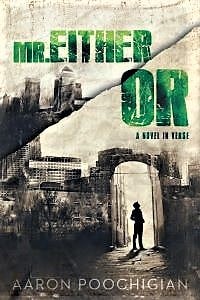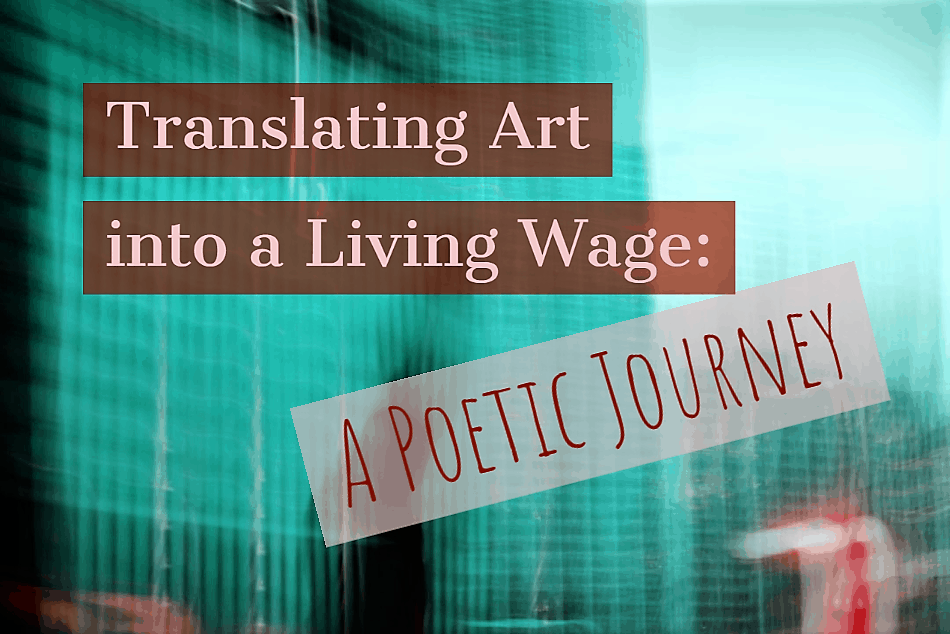by Aaron Poochigian
I am a professional poet.
Since, in the contemporary literary environment, that statement may seem to verge on the oxymoronic, I should explain that I am not talking about the quality of my work compared to anyone else’s but rather about my discipline and attitude.
I resolved a number of years ago that I would write poetry full-time and that, yes, I would be so shameless as to expect money for my poems. I started submitting my work to paying venues and to poetry competitions that awarded prizes in the thousands of dollars. I have done fairly well but must confess that, even as a childless bachelor with a low standard of living, I proved unable to get by on the proceeds of my original work.
In consequence, I decided to allow myself to do literary translations of poetry for advances and royalties from presses such as Penguin and Norton. Literary translation is the art of translating foreign-language literature into host-language literature, English in my case. The fact that many 20th-century Russian poets and even Baudelaire himself did work in literary translation allayed my fear that such work would sap me creatively and leave nothing left for my original creations.
What I have found is that these translations have supported my original work not only financially but also creatively, in that they have allowed me to focus on craft (since the content is given) and to expand my own “voice” by ventriloquizing such strong and distinctive voices as those of Sappho and Baudelaire. For example, I translated the Sappho fragment: “I say that in another time people will remember us” into:
I declare
That, later on,
Even in an age unlike our own,
Someone will remember who we are.
I would like to encourage not just poets but all writers who are at least conversant with a foreign language to try their hands at literary translation. If you want to make some money in literary translation, I suggest the following:
- Choose a popular writer (an obscure or wholly unknown poet/writer, whatever service you might be doing the literary community, will not be attractive to editors at major presses. They need names that will sell themselves).
- Choose a writer whose work is in the public domain (so that you do not have to share the royalties with anyone).
- Make sure your translation/s will be an event—that is that your version is set apart from others because of distinctive craft choices or other circumstances (such as a bicentennial—Baudelaire’s is in 2021).
- Make sure you actually do literary translations (that is, make a translation that is enjoyable as literature in its own right, not merely because it points to something in another language).
We all, I think, have been frustrated when we have encountered great foreign authors in bad English translations. Together we can remedy that situation (and maybe make a bit of money in the process).
Join the discussion on Facebook!

 AARON POOCHIGIAN earned a PhD in Classics from the University of Minnesota and an MFA in Poetry from Columbia University. His book of translations from Sappho, Stung With Love, was published by Penguin Classics in 2009, and his translation of Apollonius’ Jason and the Argonauts was released October 2014. For his work in translation he was awarded a 2010-2011 Grant by the National Endowment for the Arts. His second book Manhattanite, which won the 2016 Able Muse Poetry Prize, came out in December of 2017, and his third book American Divine won the 2021 Richard Wilbur Prize. His thriller in verse, Mr. Either/Or, was released by Etruscan Press in the fall of 2017. His work has appeared in such publications as Best American Poetry, The Paris Review and POETRY.
AARON POOCHIGIAN earned a PhD in Classics from the University of Minnesota and an MFA in Poetry from Columbia University. His book of translations from Sappho, Stung With Love, was published by Penguin Classics in 2009, and his translation of Apollonius’ Jason and the Argonauts was released October 2014. For his work in translation he was awarded a 2010-2011 Grant by the National Endowment for the Arts. His second book Manhattanite, which won the 2016 Able Muse Poetry Prize, came out in December of 2017, and his third book American Divine won the 2021 Richard Wilbur Prize. His thriller in verse, Mr. Either/Or, was released by Etruscan Press in the fall of 2017. His work has appeared in such publications as Best American Poetry, The Paris Review and POETRY.





